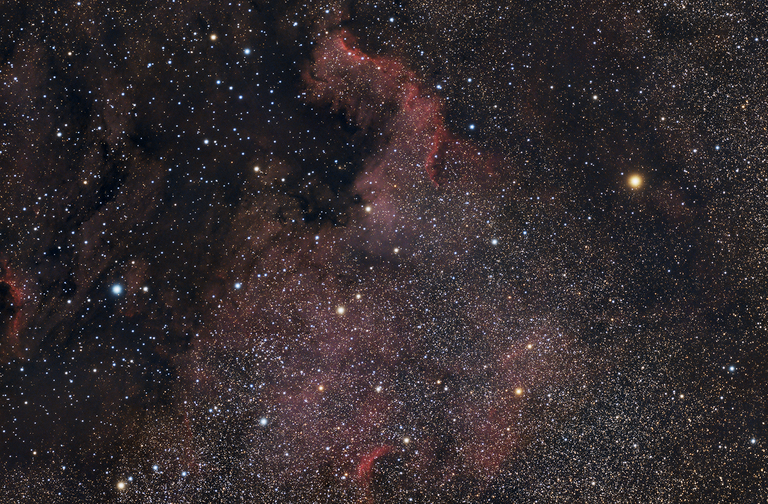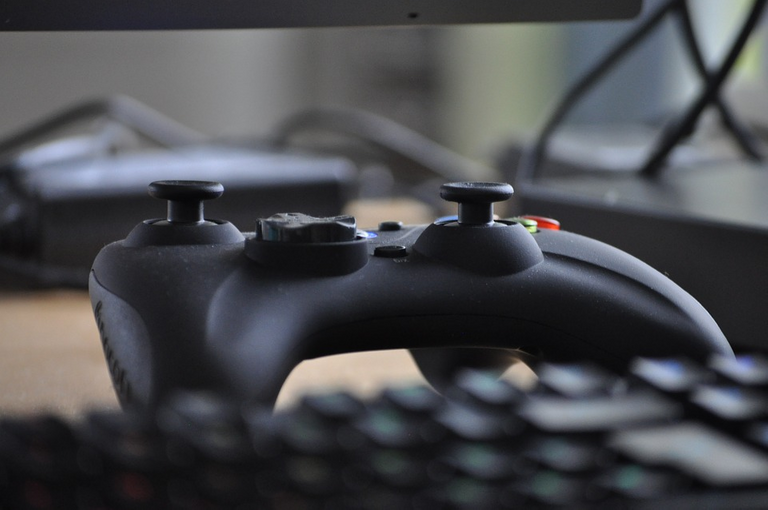Curating the Internet: Science and technology micro-summaries for August 15, 2019
An artificial intelligence system that can explain its reasoning; Archaeologists study the site of a mass killing in Poland, 5,000 years ago; A CEO describes the skills that humans need to thrive in an unpredictable world; 15 papers retracted in two journals for probable use of organs from prisoners who were executed in China; Steem photos of the North America Nebula
Straight from my RSS feed | Whatever gets my attention |
Links and micro-summaries from my 1000+ daily headlines. I filter them so you don't have to.
- A Breakthrough in Explainable AI - Tech reporter, Joe Dysart describes work by Georgia Tech, Cornell University, and the University of Kentucky to get an artificial intelligence (AI) system to explain its reasoning. The breakthrough was made by treating the problem as a translation problem, and beginning with human players who described their reasoning while learning the game, Frogger. The translation map that was built from human reasoning was entered as data into the AI system, which could then build play by play explanations of its reasoning. Humans who read the rationale still preferred to read human explanations, but the researchers believe that this is an important breakthrough because it is a step towards enabling more effective human-AI collaboration.
- We Are Family - A reminder that mass killings are not a modern phenomenon. Remains from fifteen members of a family were found after being killed in a brutal massacre in Poland, 5,000 years ago. Genetic analysis shows that the family was patrilineal, where women left their own parents to live with their husbands' families. The killings may have been precipitated by tensions after a number of pastoralists arrived arrived from a steppe region to Poland's east.
- The human skills we need in an unpredictable world - In this TED talk, Margaret Heffernan, the CEO of five companies, talks about the increasing uncertainty of living in today's complex world. In this context, she says that efficiency undermines our ability to adapt and respond to unpredictable and constantly changing circumstances, and suggests that managers need to switch from "just in time" management to "just in case" for robust and sustainable policies. In an example, she points out how this was accomplished in a hospital by decentralizing decision-making authority to the nurses on the floor. She also acknowledges, however, that experiments along these lines do not always work. The human qualities that she says we need for resilience in unpredictable times include: "Preparedness, coalition-building, imagination, experiments, bravery", and later, "inventiveness and exploration". She also argues against outsourcing too much of human analysis to machines, saying, "But in our growing dependence on technology, we're asset-stripping those skills. Every time we use technology to nudge us through a decision or a choice or to interpret how somebody's feeling or to guide us through a conversation, we outsource to a machine what we could, can do ourselves, and it's an expensive trade-off. The more we let machines think for us, the less we can think for ourselves. ". In many ways, her talk seems to be trying to confront the Black Swan phenomenon that Nassim Nicholas Taleb has written about.
- Journals retract more than a dozen studies from China that may have used executed prisoners’ organs - Fifteen studies have been retracted by PLOS ONE and Transplantation in the past month after suspicions arose that the studies were performed on the organs of prisoners who had been executed by the Chinese government. Citing research from earlier this year, the article speculates that this may signal, "the start of a flood" of retractions by numerous journals, saying that the paper identified 400 articles that likely used organs from prisoners who had been executed in China.
- STEEM The North America Nebula - In this post, @astrophoto.kevin shares photography of the North America Nebula (NGC 7000). The nebula is located 1600 light years away, in the Cygnus constellation. It's "visible size" is four times that of the moon, but it is too dim to be seen with the naked eye. The photos also include parts of the Pelican Nebula (IC 5070) and the Milky Way. Since the post gives permission for reuse with credit, here is one of the photos.
The North America Nebula at a focal length of 420mm by @astrophoto.kevin

Click through for the others, and to read @astrophoto.kevin's desciption of the work. (A 10% beneficiary setting has been applied to this post for @astrophoto.kevin)
In order to help make Steem the go to place for timely information on diverse topics, I invite you to discuss any of these links in the comments and/or your own response post.
My other open posts
@remlaps
@remlaps-lite
- Curating the Internet: Science and technology micro-summaries for August 14, 2019
- Curating the Internet: Science and technology micro-summaries for August 13, 2019
- Curating the Internet: Science and technology micro-summaries for August 12, 2019
- Curating the Internet: Science and technology micro-summaries for August 11, 2019
- Curating the Internet: Business, economics, and leadership micro-summaries for August 10, 2019
- Curating the Internet: Science and technology micro-summaries for August 10, 2019
- Curating the Internet: Science and technology micro-summaries for August 9, 2019
About this series
Like what you read? I'd like to cover more links and topics, but the research is time consuming. Your upvotes and shares will help to expand this series and also direct collaboration rewards towards more Steem authors.
Note: Sharing a link does not imply endorsement or agreement, and I receive no incentives for sharing from any of the content producers.
Follow on steem: @remlaps-lite, @remlaps
If you are not on Steem yet, you can follow through RSS: remlaps-lite, remlaps.
Thanks to SteemRSS from philipkoon, doriitamar, and torrey.blog for the Steem RSS feeds!
0
0
0.000

Thank you very much for picking up my post @remlaps-lite :-)
You're welcome. And thank you for the post. It's nice that you can shoot from your back yard like that. Even if I had the right gear, I think the skies are too bright where I am. I have to make a several-hour road trip to get away from light domes from the cities and heavily populated suburbs in my area.
Nothing to thank for :-)
I am really very happy to live here in the countryside, although it is also quite bright here. To have it really dark I would have to drive quite far into the mountains.
Fantastic blog on business.